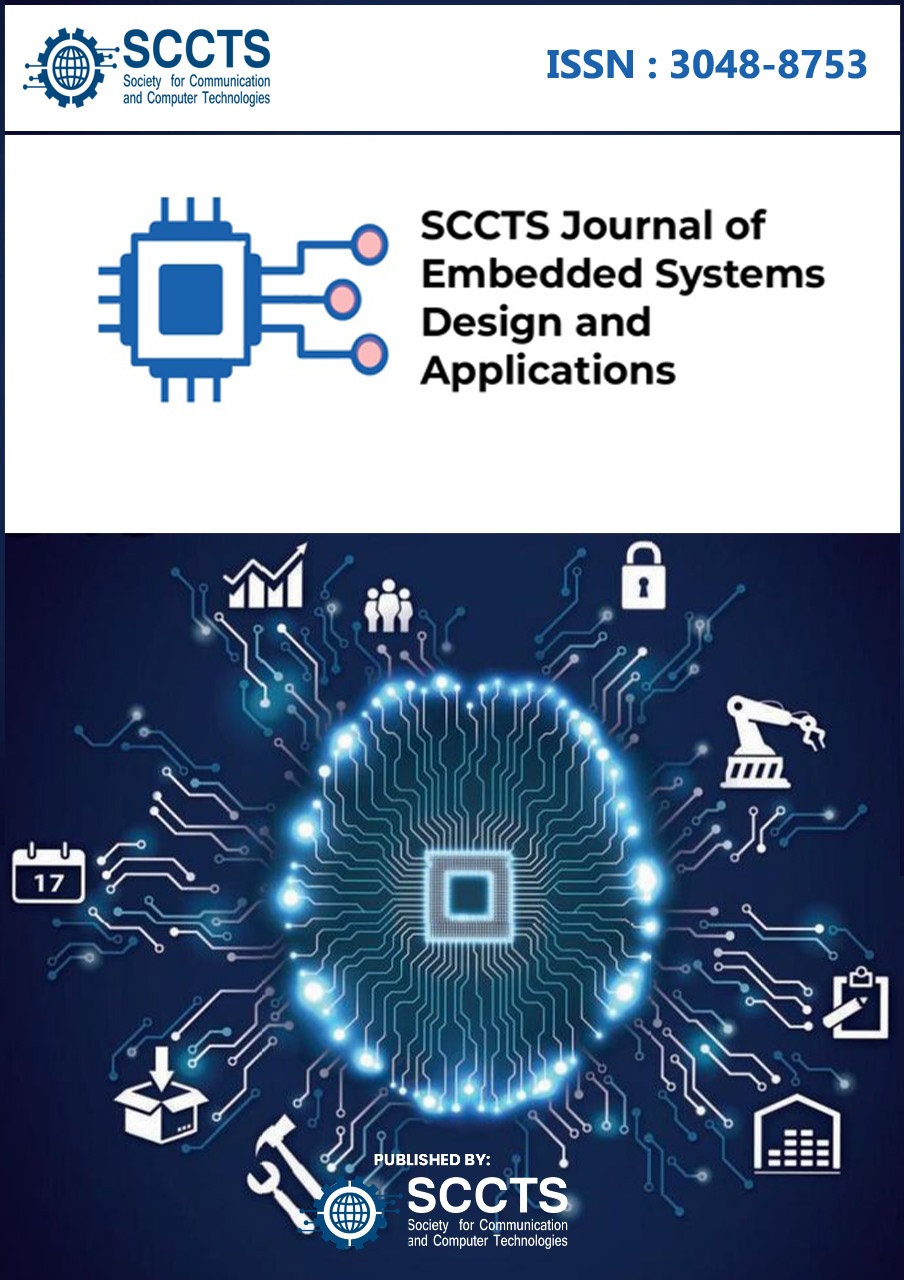Quantum-Inspired Reconfigurable Computing for Accelerated Matrix Computations in High-Performance Embedded Systems
DOI:
https://doi.org/10.31838/ESA/03.02.06Keywords:
Quantum-inspired computing, matrix computation, reconfigurable architecture, embedded systems, FPGA acceleration, dynamic partial reconfiguration, pseudo-superposition, parallelism.Abstract
The emergence of data-hungry systems in the form of artificial intelligence, real-time signal processing, and scientific computing systems inside embedded systems has set extremely high requirements to the computational capabilities, electrical energy efficiency and flexibility. The computational backbone of many of these applications is matrix computations, that typically face bottlenecks in traditional processor architectures because of individual resources having no parallelism, and a lack of dynamism in resource allocation. In order to overcome such limitations, this paper introduces a new reconfigurable computing implementation, called Quantum-Inspired Matrix Engine (QIME) that emulates all three of these important quantum computing concepts of superposition, parallelism, and entanglement in a classical hardware setting. The system of the proposal will be applied to the Field-Programmable Gate Arrays (FPGAs), and here, the system will be used to incorporate a pseudo-quantum state encoding process that enables the representation and processing of multiple matrix states simultaneously. QIME also has dynamic partial reconfiguration (DPR) so as to further have flexibility and efficiency in matching the architecture in real time with the nature and the complexity of the operations performed in the matrix. Also, there is approximate computing, where computational precision is traded off against performance where the tradeoff is allowed to increase energy profiles under workload variability. Experimental analysis of some typical benchmarks on matrices, including multiplication, decomposition, and convolution, shows that for representative operations QIME provides up to 6.3x speedup and 4.1x energy efficiency improvements over typical matrix co-processors and embedded GPUs. These findings will support the viability of quantum-inspired design paradigms in moving forward the performance and scalability of high-performance embedded systems, especially in the edge, and constrained circumstances where conventional quantum hardware is infeasible.





